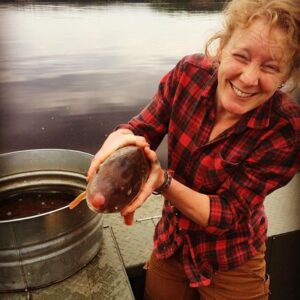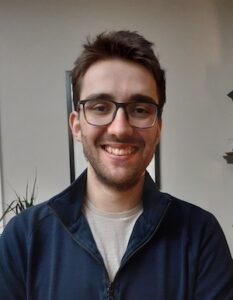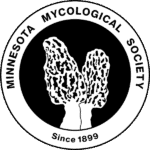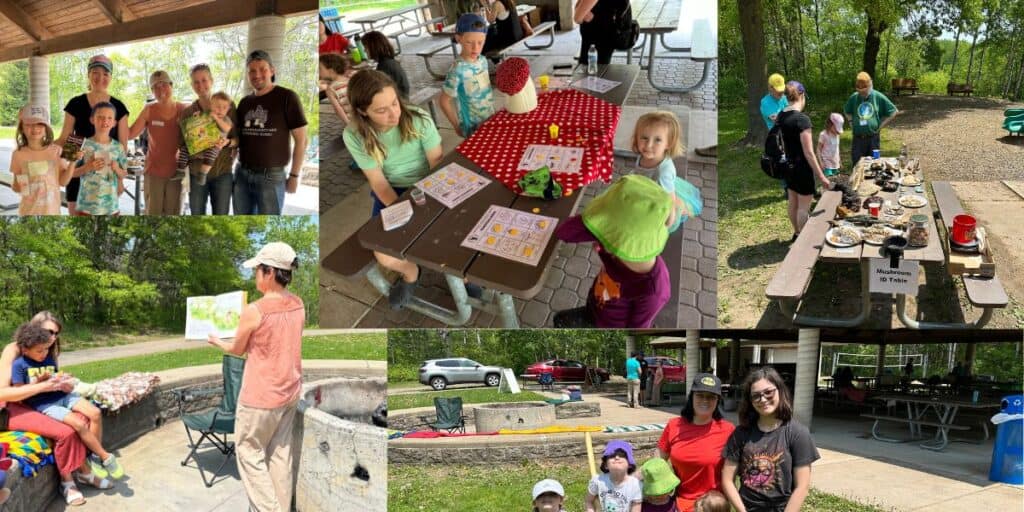MMS Meeting
Tonight there will be two presentations by recipients of this year’s MMS Graduate Scholarship.
Jessy Carlson’s presentation will be on Mycorrhizal Associations and Assisted Forest Migration.
 Climate change threatens the persistence of forest canopy cover and its associated ecological function. Rapidly changing forest composition also poses a threat to cultural identity, impacting humans’ ability to access plants, fungi, and animals they depend on for the maintenance of their cultures. Assisted forest migration, or, moving populations of trees north or up in elevation, increases a species’ rate of genetic adaptation, keeping it in step with the rate of climate change. Understanding the conditions under which climate-adapted seedlings are most likely to succeed will be vital to ensuring their sustained presence on the northern landscape. When introducing southern genotypes to northern sites, will mycorrhizal factors influence seedling survival and success? Also, will fungal inoculation improve germination and survival rates of nursery-grown climate-adapted seedlings? Jessy’s research aims to address these questions and contribute to the preservation of cultural keystone species in Northern Minnesota. This presentation will cover what we know so far regarding mycorrhizae in the context of reforestation efforts, and how we plan to proceed with our research.
Climate change threatens the persistence of forest canopy cover and its associated ecological function. Rapidly changing forest composition also poses a threat to cultural identity, impacting humans’ ability to access plants, fungi, and animals they depend on for the maintenance of their cultures. Assisted forest migration, or, moving populations of trees north or up in elevation, increases a species’ rate of genetic adaptation, keeping it in step with the rate of climate change. Understanding the conditions under which climate-adapted seedlings are most likely to succeed will be vital to ensuring their sustained presence on the northern landscape. When introducing southern genotypes to northern sites, will mycorrhizal factors influence seedling survival and success? Also, will fungal inoculation improve germination and survival rates of nursery-grown climate-adapted seedlings? Jessy’s research aims to address these questions and contribute to the preservation of cultural keystone species in Northern Minnesota. This presentation will cover what we know so far regarding mycorrhizae in the context of reforestation efforts, and how we plan to proceed with our research.
Jessy Carlson is a graduate student at the University of Minnesota Duluth and a member of Dr. Julie Etterson’s lab team. Cook County is her home, and Jessy’s work is directly related to the preservation and health of the forests she shares with her neighbors. Jessy previously received a Bachelor of Science in Biology and First Nations Studies from the University of Wisconsin Superior and a Master’s of Environmental Studies in Northern Environments and Cultures from Lakehead University in Thunder Bay Ontario.
Charles Ayers will present on the topic of Mycoremediation of “Forever Chemicals”: Investigating Fungal PFAS Degradation.
 Although PFAS was thought of as “non-biodegradable”, evidence has shown that microbes can degrade perfluorooctane sulfonic acid (PFOS) and perfluorooctanoic acid (PFOA) – two primary industrial PFAS compounds.This has been confirmed in a feammnox bacterium Acidimicrobium sp. strain A6 that can defluorinate, via a reductive process, and metabolize the PFAS carbons, and has since shed light on using bioremediation for PFAS removal. In addition to bacteria, fungi have also shown the potential to remediate PFAS, and we believe that fungi are well suited for this mission for several reasons: 1) the “mycofiltration network” of mycelium can provide a large hyphosphere area for sequestering PFAS; 2) fungi can secret a variety of low-specificity enzymes (e.g., laccase and peroxidases) for co-metabolizing PFAS, likely via an oxidative process; 3) Using wood chips as nutrients and supporting matrix, saprotrophic fungi are able to survive and remediate in the changing soil environments. In spite of this, investigations into fungal degradation of PFAS lag far behind that of bacteria, begging for new efforts to dissect this promising process.
Although PFAS was thought of as “non-biodegradable”, evidence has shown that microbes can degrade perfluorooctane sulfonic acid (PFOS) and perfluorooctanoic acid (PFOA) – two primary industrial PFAS compounds.This has been confirmed in a feammnox bacterium Acidimicrobium sp. strain A6 that can defluorinate, via a reductive process, and metabolize the PFAS carbons, and has since shed light on using bioremediation for PFAS removal. In addition to bacteria, fungi have also shown the potential to remediate PFAS, and we believe that fungi are well suited for this mission for several reasons: 1) the “mycofiltration network” of mycelium can provide a large hyphosphere area for sequestering PFAS; 2) fungi can secret a variety of low-specificity enzymes (e.g., laccase and peroxidases) for co-metabolizing PFAS, likely via an oxidative process; 3) Using wood chips as nutrients and supporting matrix, saprotrophic fungi are able to survive and remediate in the changing soil environments. In spite of this, investigations into fungal degradation of PFAS lag far behind that of bacteria, begging for new efforts to dissect this promising process.
Charles Ayers obtained his B.S. in Biology from Earlham College, afterwards he worked for 5 years as a medical technologist at the University of Minnesota Veterinary Medical Center while pursuing a Master of Biology through The College of Continuing and Professional Studies (CCAPS). In 2021 he transferred to The Bioproducts and Biosystems Science, Engineering and Management Graduate Degree Program. He currently works in the Zhang Lab pursuing the lab’s primary goals of developing a Brown-rot Fungi gene editing system and harnessing fungi for remediation of environmental pollutants. The aim of his research is to leverage the Zhang lab’s expertise in fungal genetics to study the genetic underpinnings of fungal metabolism of recalcitrant xenobiotics; namely PFAS (Per-and polyfluoroalkyl substances). To elucidate the mechanisms through which these compounds can be degraded and to move towards the development of a microbial treatment for these emerging contaminants of concern.
For our member’s convenience, all MMS meetings will use the same Zoom link. This link is provided on meeting announcements and reminders.
This meeting is free and open to the public. If you are not a member, contact webmaster@minnesotamycologicalsociety.org to get details on how to join this virtual meeting. Please do so no later than an hour before the meeting.
If you haven’t used Zoom before and don’t want to miss anything, you may want to click on the meeting link to download Zoom and familiarize yourself with it at least 15 minutes prior to the meeting.
How to join a Zoom meeting – You do not need a Zoom account, but you will need the Zoom app installed on your desktop or mobile device. You can either download the Zoom app in advance here. Or, you will be automatically prompted to download and install the Zoom app when you click on a meeting link for the first time. You can also join a test meeting at any time at https://zoom.us/test. Watch a video on how to join a Zoom meeting here.

